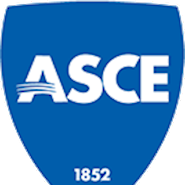ASCE has honored Ram Pendyala, Ph.D., A.M.ASCE, with the 2025 Frank M. Masters Transportation Engineering Award for innovative contributions of novel methods and analytical tools for planning and design of next-generation transportation systems and their operations.
Pendyala’s work has primarily focused on the development and implementation of new methods for modeling, understanding, and forecasting travel demand. He is a pioneer in the development of new activity-based microsimulation models of travel behavior that are viewed as the next generation of tools that transportation planners are increasingly using to forecast travel demand on all modes of transportation including emerging systems of connected and automated transportation.
He has published extensively in this area of research and has established an international reputation in the field. In collaboration with leading researchers and consultants in the field, he is also heavily involved in the development of GIS tools for public transportation planning and has spearheaded the development of new transit planning software that can be used for route and service planning. Another of his areas of expertise is that of transportation data collection and analysis. He has conducted research and published extensively in the topics of household travel survey methods, statistical and econometric methods, and data mining algorithms. He has applied his expertise in these areas to analyzing freight flow patterns in Florida, understanding travel time expenditures, and modeling traveler response to a wide array of transport policies that include road pricing, parking pricing, and telecommuting. He has also conducted studies on people’s travel behavior, activity patterns, and time use in the international arena and has assisted agencies in formulating transport policies that enhance people’s quality of life.
Pendyala is leading international groups of researchers in developing key solutions for promoting sustainable transport systems in rapidly developing regions of the world.
Finally, he is very active in conducting research on the impacts of technology on travel behavior and on the relationships between the built environment and public health. The increasing market penetration of use of technology (internet, cell phones, etc.) has changed the way people travel, access goods and services, and participate in activities. Pendyala has been conducting extensive research to model and understand these changes. With respect to the built environment and public health, he is studying how alternative land use and transportation system configurations affect people’s travel patterns, modal choices, and levels of physical activity.
As well, Pendyala is exploring various health effects of transportation development patterns, such as respiratory illnesses, obesity (particularly in children), and heart problems.
The Frank M. Masters Transportation Engineering Award recognizes the best example of innovative or noteworthy planning, design, or construction of transportation facilities.



